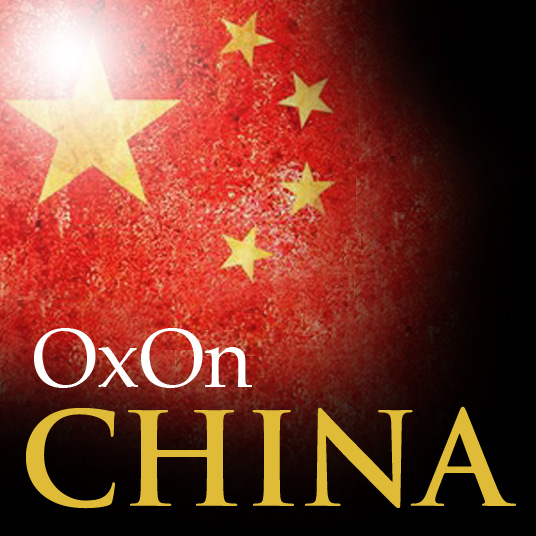Xi’s recent visit to Russia is unlikely to spur more initiative from Russia to expand bilateral ties beyond trade agreements. This is mainly due to Russia’s misconceptions about China and the nature of their relationship.
As I first crossed the China-Russia border from Heilongjiang Province into Primorsky Krai back in 2007, I stepped into a different world. On the bus that took me across the border, the many Chinese passengers were far more friendly and talkative than the few Russian travellers on board, hauling back Chinese merchandise. I had left Suifenhe, a town bustling with activity, including Russian tourists and traders, and suddenly found myself in a desolate and unwelcoming Pogranichniy.
Most people who have crossed that border will recognise those contrasting impressions, which are symbolic of the two countries’ unequal standing. Last year, China’s GDP grew twice as fast as Russia’s. At the same time, investment as a part of GDP, a measure of potential future growth, was 46 percent in China versus only 23 percent in Russia. China’s growth in influence is truly global and multi-dimensional. Russia’s is mostly limited to the “Near Abroad”, and seems highly correlated with the price of oil and gas. Bilateral trade relations also reflect rising inequalities. Whereas in 2010 China became Russia’s leading trading partner, Russia was not in China’s top 10.Despite an 11 percent rise in the value of trade between the two countries in the past year, the potential for collaboration is far from fulfilled.
While Xi’s trip to Russia was widely discussed by China’s netizens and the media, it received much less attention in Russia. Other than the TV coverage of official ceremonies, there was little discussion beyond a few reports and opinion pieces. Those mostly emphasised the importance of Russia for China. An article about the visit in the well known business daily, Kommersant, was titled “China Needs a Successful Russia”–a phrase Xi used in his Moscow address. An op-ed in the reputable publication Vedomosti concluded by arguing that the difference in height of the two presidents should not be mistaken for a sign of Russia’s relative weakness: “Let China’s economy grow many times faster than Russia’s—its very growth is supplied by Russia’s oil and gas! Without it Xi would not be able to make Chinese relatively wealthy,” read the closing line. An editorial by a prominent Russia expert praised Russians “for having adjusted to China’s meteoric rise…” The extent of that adjustment was described by two words: “not panicking”.
Russians’ misconceptions about China extend far beyond these reactions to Xi’s visit. When I met a prominent Moscow-based investigative journalist in 2010, he seemed shocked by my interest in comparing the two countries’ media practices. “How can you compare us? We have absolutely nothing in common!” he said, in an accusatory tone. My conversations with intellectuals and scholars in Moscow revealed that many held similar opinions. Some even pictured today’s China as the Soviet Union of the 1970s. Others were in disbelief when I spoke about China’s investigative reporting, environmental activism, and the adaptiveness of the Chinese regime. Very few of my contacts in Moscow exhibited genuine curiosity for learning about their counterparts in China and for potentially engaging with them. Some Russian top officials appear more aware of China’s current standing and talk of a China “model”, but don’t seem to dwell too long on what this model entails.
Even in the Russian Far East, a region where more residents have been to China than to Moscow, the understanding of China is limited. While conducting research on Chinese migration to the Russian Far East, I found many Russians to be fearful of Chinese migrants and convinced that most of them wanted to settle permanently in Russia. That conviction is the result of a misperception of Chinese migrants’ priorities. “Russia is definitely not my first choice for work or living,” affirmed Zhu, a trader I met in Vladivostok. “My first choice was Australia, followed by Japan and Korea. I’m only here because the other options did not work out. I definitely plan to return to China eventually.” The hesitance to go to Russia is also notable among Chinese students and professionals. Students I talked to in Harbin, the capital of Heilongjiang Province, are more eager to study in Kazakhstan than Russia, while those from cities like Beijing or Shanghai aim for the United States and Europe. While some Chinese still end up settling in Russia, many do so out of necessity. My research with Professor Balzer at Georgetown University, found missed opportunities in labor cooperation between the two countries, rather than imminent threats of a Chinese takeover.
While China could also do more to deepen bilateral ties, the unequal nature of the relationship calls for Russia to perfect its understanding of, and engagement with its neighbour. One of the cornerstones of China’s success is its willingness to learn from others. “Regarding economic development, we learn from whoever we can and bring back the best practices to China,” I was told by a research associate at the State Council. Ezra Vogel’s recent biography of Deng Xiaoping eloquently analyses these learning patterns, including the party’s thorough examination of the Soviet Union’s collapse. Russia has much to gain from adopting some of China’s curiosity and humility for its partners.








No Comment